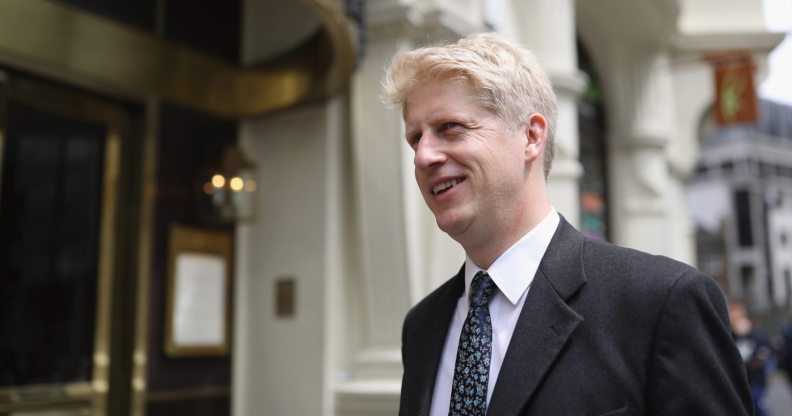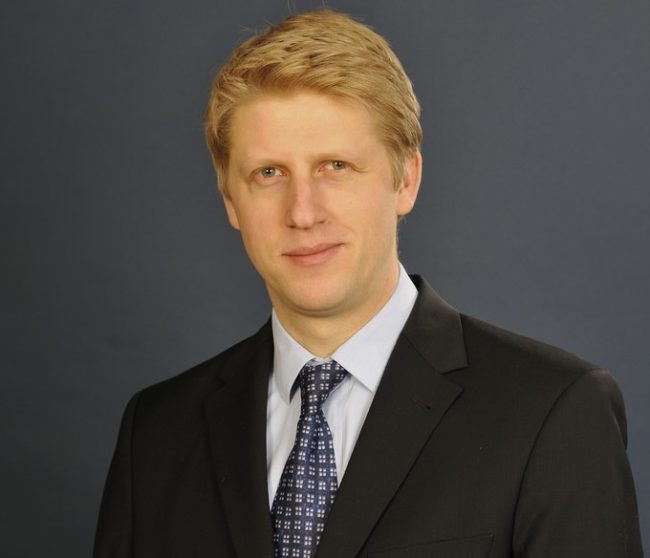Universities could be fined for no platforming anti-trans speakers

LONDON, ENGLAND – JUNE 30: Jo Johnson MP is seen after Former London Mayor and Conservative MP Boris Johnson ruled himself out of becoming the next Conservative party leader at St Ermin’s Hotel on June 30, 2016 in London, England. Nominations for MP’s to declare their intention to run for the Conservative Party Leadership and therefore British Prime Minister will close by noon today. The current Prime Minister and party leader, David Cameron, announced his resignation the day after the UK voted to leave the European Union. (Photo by Dan Kitwood/Getty Images)
A Government minister has threatened fines against universities which ban speakers with transphobic views from appearing.
Jo Johnson, the Universities Minister has repeated threats against universities that ban speakers like Germaine Greer who has made a string of transphobic comments.
The minister earlier this year said that academic institutions cannot prevent ban speakers with transphobic or homophobic views.

Johnson threatened to hit universities with fines and other sanctions if they prevent events from going ahead due to controversial speakers.
He has doubled down on that threat in a new interview with BBC Radio 4’s Today Programme.

(Getty)
Johnson confirmed plans for the Office for Students (OfS) to have powers to fine or suspend institutions that use no platforming to block speakers from appearing.
He said: “The Office for Students will have a range of remedies at its disposal which do include fines at the more extreme end of the spectrum. I think it is important that we look at the cases mentioned.
“These are speakers who have been potentially banned or harried under no-platforming or safe spaces decisions. On all reasonable definitions, they are advocates of openness and liberal values and should be welcomed on our campuses.”
Johnson also claimed that some universities had lists of “trigger words” which were used to determine whether speakers could appear and whether books should appear in libraries.
He said that students should be “resilient and learn to deal with controversial opinions”.
When he spoke earlier this year, the minister singled out controversies over speakers with transphobic views, including author Germaine Greer.
The feminist author has faced protests at events for her avowedly anti-trans beliefs, having called for women’s colleges to eject transgender students.

Greer claimed last year: “Just because you lop off your d**k and then wear a dress doesn’t make you a f***ing woman”.
Speaking to The Times back in October, Johnson said new rules were needed and branded it “preposterous” to ban Greer from speaking – though PinkNews is not aware of any occasions on which she has actually been actively banned from doing so by a University.
He said: “She has every right, if invited, to give views on difficult and awkward subjects… no-platforming and safe spaces shouldn’t be used to shut down legitimate free speech.”
“Our young people and students need to accept the legitimacy of healthy vigorous debate in which people can disagree with one another.
“That’s how ideas get tested, prejudices exposed and society advances. Universities mustn’t be places in which free speech is stifled.”

Germaine Greer (Photo by Gaye Gerard/Getty Images)
He told the newspaper at the time that universities that fail to comply “could be fined, suspended or ultimately deregistered” by the newly-established Office for Students.
Johnson, the brother of Foreign Secretary and Brexit leader Boris Johnson, claimed the rules are needed “to protect freedom of speech”.
But students’ reps say the rules are hypocritical, given the UK government has previously extensively intervened to ban religious speakers spreading anti-LGBT views on university campuses.
Former Prime Minister David Cameron previously vowed to “name and shame” extremists who espouse anti-LGBT views at universities.
Mr Cameron said at the time: “All public institutions have a role to play in rooting out and challenging extremism.
“It is not about oppressing free speech or stifling academic freedom, it is about making sure that radical views and ideas are not given the oxygen they need to flourish.”
Johnson’s statement seems markedly different.
He said: “Freedom of speech is a fundamentally British value which is undermined by a reluctance of institutions to embrace healthy vigorous debate. Our universities must open minds not close them.”
Johnson added: “It goes to the heart of our democratic values and is a principle universities hold dear.
“I know there is good practice out there, and am proud that some of our university leaders and academics have publicly defended free speech.
“But there are still examples of censorship where groups have sought to stifle those who do not agree with them.
“I want the OfS to work with universities to encourage a culture of openness and debate and ensure that those with different backgrounds or perspectives can flourish in a higher education environment.”

